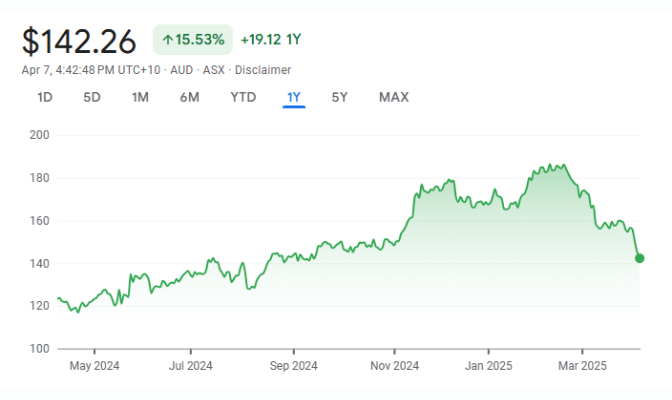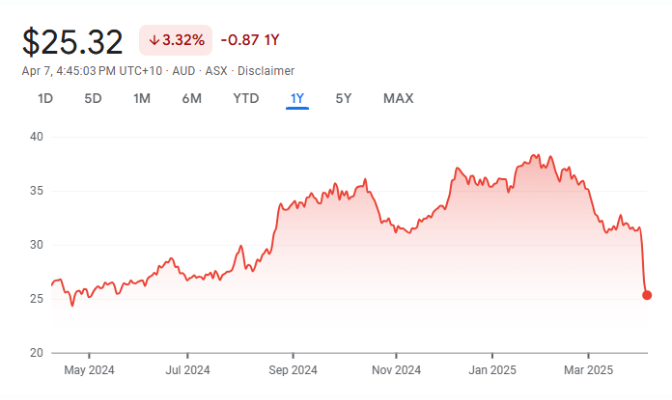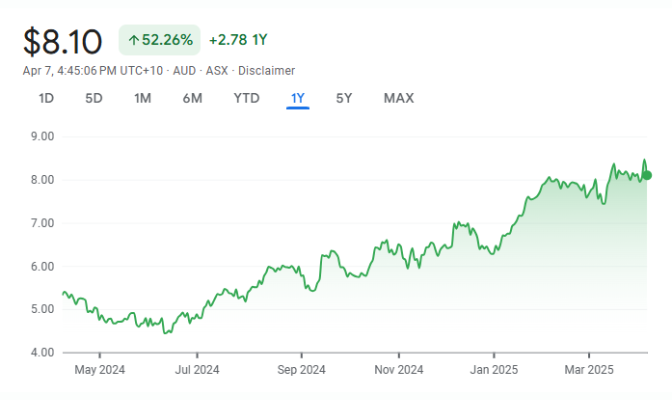What Are Growth Stocks?
Growth stocks are stocks growing their revenues and/or profits higher than other companies. There's no hard and fast rule as to what constitutes a growth stock, nor are there rules as to what industries they can be in (although many are classified as technology stocks). Nonetheless, any such companies experience such growth over multiple years, rather than just in the short term.
What makes them unique? They often command a premium with high multiples, such as the price-to-earnings ratios, or just higher equity values. This is because people expect them to earn a lot more in the future. Instead of paying out dividends, these companies reinvest their profits to grow even bigger and faster. This approach sets the stage for substantial increases in their stock value over time.
Why invest in Growth Stocks?
Investing in growth stocks can offer better potential for returns than other stocks on the ASX. In many instances they can give a sense of pride in that investors can feel they were a part of something major. Imagine if you invested in any of the 'Magnificent Seven' back in the 1990s, held since then and being able to boast not just in the returns but having been part of something special.
They're perfect for those looking to grow their money over the long haul, rather than seeking quick, regular income. Plus, adding these stocks to your investment mix is like spicing up a meal; it adds variety and can enhance the overall flavour.
But, remember, with the prospect of higher returns comes a higher prospect of risk. These stocks can take you on a wild ride with their ups and downs, and some may not even succeed at all. They're best suited for those who can buckle in for the long term and handle a bit of turbulence along the way.
Get the Latest Stock Market Insights for Free with
Stocks Down Under & Pitt Street Research
Join our newsletter and receive exclusive insights, market trends, investment tips, and updates delivered directly to your inbox. Don't miss out – subscribe today and make informed investment decisions.
What to look for when Investing in Growth Stocks
When exploring growth stocks, it’s essential to focus on firms with robust revenue growth, a solid profitability record, and strong cash flow. Seek out companies that have established themselves in large, expanding markets and possess a distinct competitive advantage.
The experience and effectiveness of the management team in executing the company’s strategy are also key factors to consider. Pay attention to valuation metrics such as the Price-to-Earnings (P/E), EV/Revenue and P/E-to-Growth (PEG) ratios to ensure the stock is reasonably priced. Prioritize businesses at the forefront of technological advancements or those disrupting traditional industries.
5 Best ASX Growth Stocks to Buy Now in 2025

Xero (ASX: XRO)
Xero is a leading cloud-based accounting software company that has seen remarkable growth since its listing on the ASX. Targeting small to medium-sized enterprises (SMEs), Xero provides tools for invoicing, payroll, bank reconciliation, tax management, and financial reporting—all through a user-friendly, subscription-based platform...

Breville Group (ASX: BRG)
Breville Group is an Australian success story, renowned globally for its high-quality and stylish kitchen appliances. Originally focused on the local market, Breville has successfully expanded into the United States, Europe, and other international regions...

Capricorn Metals (ASX: CMM)
Capricorn Metals is a rising star in Australia’s gold mining sector, with its flagship operation—the Karlawinda Gold Project—located in Western Australia. Since commencing commercial production, Capricorn has gained investor attention for its efficient, low-cost operations and disciplined management...
5 Best ASX Growth Stocks to Buy Now in 2025
Pros and Cons of Investing in Growth Stock ASX
Investing in high-growth stocks tends to be a thrilling ride towards substantial wealth creation. They're tailor-made for those eyeing long-term gains, rather than immediate cash returns. Imagine being part of groundbreaking, innovative companies - it's an exhilarating prospect!
But, it's not all smooth sailing. These stocks can be overpriced, and their high price-to-earnings ratios might not quite match up with their future growth, potentially leading to financial setbacks. They're also like rollercoasters, with their higher volatility and unpredictable futures, which can sway your returns, but not all growth stocks.
Growth investors should not expect regular dividend payouts as growth companies prefer to reinvest their profits to fuel further growth.
Growth Stocks vs. Value Stocks
Many growth stocks tend to come with a higher price tag (higher P/E ratios) but promise the thrill of capital appreciation. If you're comfortable riding the waves of higher volatility, a growth company might be your pick.
On the flip side, value stocks are the hidden treasures of the market, often undervalued but brimming with potential.
Whether you choose the path of growth stocks or value stocks depends on your personal investment style - are you a thrill-seeker or a safety-first investor? Your choice reflects your risk tolerance, investment goals, and how long you're willing to wait to see your investments grow: tolerance, investment goals, and time horizon.
How to Choose the Right ASX Growth Stocks?
Choosing the right ASX growth stocks is like being a detective in the financial world, where keen analysis and thorough research are your tools.
Find growth stocks by zeroing in on companies that have a stellar track record of increasing their revenue and profits. Look for players with a competitive edge in the market, backed by a solid management team. Dive into their financial health using ratios like P/E and PEG to figure out if you're getting a good deal.
Keep an eye out for catalysts that might rocket their growth sky-high. And remember, spreading your bets across different sectors is like having a safety net, reducing your risk while aiming for those big wins. Tailor your stock picks to align with your personal investment goals and how much risk you're up for. It's a blend of strategy, insight, and a bit of daring!
Are ASX Growth Stocks right for you?
These stocks are perfect for those who dream of high returns and aren't shy about embracing the rollercoaster ride of high-growth sectors. They're a match for investors with a vision for the long haul, ready to ride out the ups and downs of the market.
But if you prefer a smooth journey with regular income stops, like dividends, these might not be your best companions. Before you pack your investment bag, do your homework thoroughly or maybe chat with an advisor to ensure these stocks are the right fit for your financial journey. It's all about mapping your route to align with your risk comfort zone
FAQs on Investing in Growth Stocks
Growth stocks come with their own set of risks. These stocks are akin to high-speed trains in the investment world – they promise rapid growth and exciting potential, but the ride can be bumpy. Their prices tend to be more volatile, often swinging widely based on market expectations and their future earnings potential.
Our Blogs on ASX Growth Stocks
The 50% CGT discount on shares: Here’s how it works, and if it is under threat
The 50% CGT discount on shares is one of the key mechanisms that helps investors keep as much of their…
Compumedics (ASX:CMP): Expecting $70m sales but trading at barely over 1x Revenues, is this a buy?
Some investors may think Compumedics (ASX:CMP) is highly undervalued. It trades at $75m, a level that many clinical-stage medtech or…
Stocks Down Under’s Top 10 Hottest ASX Stocks to Look At in 2026!
Today, on the first trading day of 2026, Stocks Down Under publishes its its 10 Hottest ASX Stocks to Look…
Does Dusk Group (ASX:DSK) smell undervalued? There’d be potential if its customers weren’t so careful with money
Dusk Group (ASX:DSK) purports to be Australia’s favourite home fragrance seller. But investors have not been sharing the love for…
Our 5 ASX Predictions for 2026!
This article outlines 5 ASX Predictions for 2026 that Stocks Down Under puts its neck on the line to assert…
Here are 8 of the Top Performing ASX Stocks in 2025 (excluding resources)!
Yesterday, we recapped the Top Performing ASX Stocks in 2025 but the list was dominated by resources companies. Today, we…
Get in touch
contact@stocksdownunder.com





